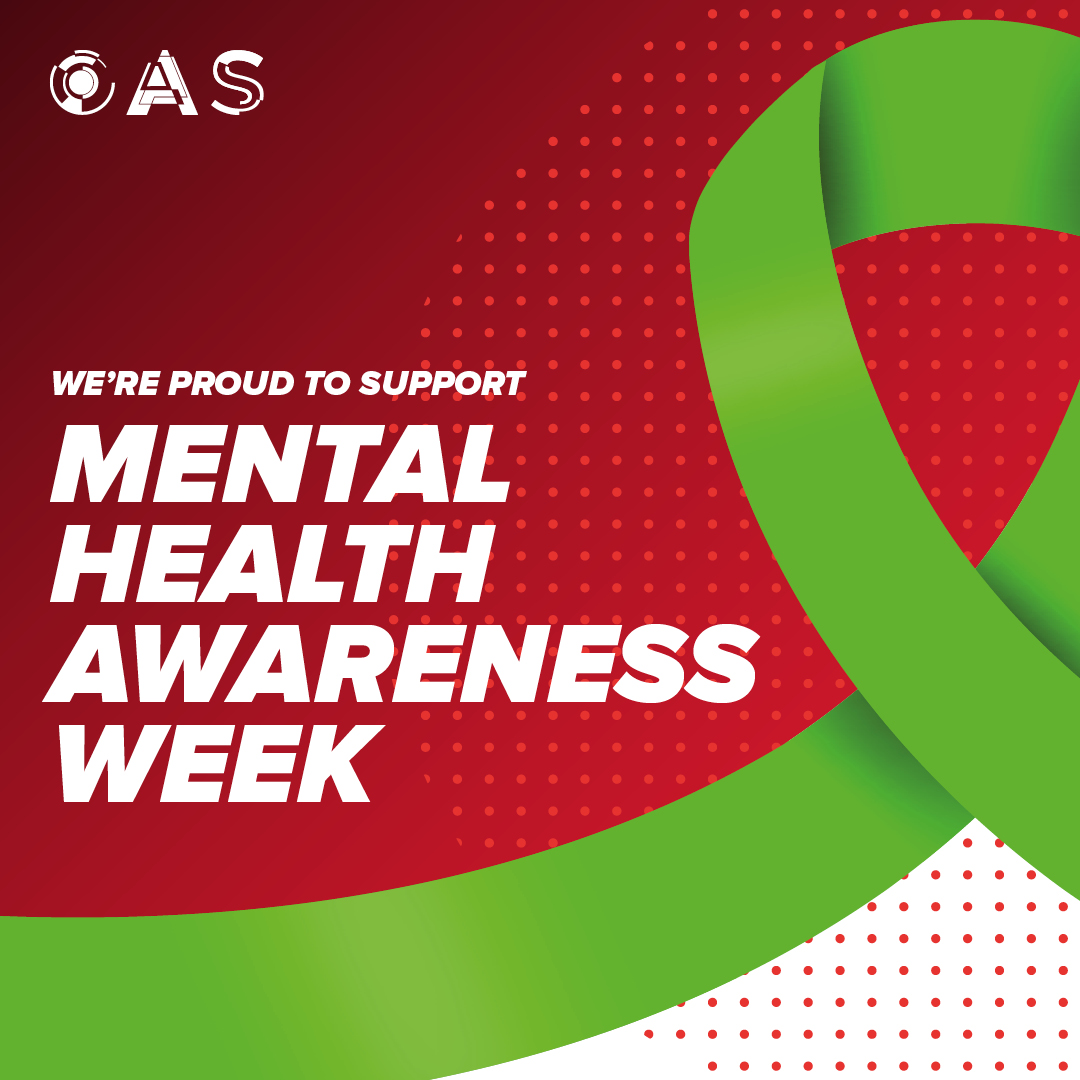Mental Health Awareness Week 2023
THIS YEAR, MENTAL HEALTH AWARENESS WEEK IS TAKING PLACE 15 – 21 MAY, WITH A FOCUS ON ANXIETY.

What is Mental Health Awareness Week?
Mental Health Awareness Week is an opportunity to come together, raise awareness and encourage better psychological and mental health.
The home of Mental Health Awareness Week, the Mental Health Foundation, is highlighting ‘anxiety’ as this year’s theme Their recent survey found that six in ten adults sometimes feel so anxious that it stops them from doing the things they want to, demonstrating just how prevalent anxiety is.
During the awareness week and beyond, OAS wants to support the effort to heighten awareness of anxiety, and encourage learners, colleagues and stakeholders to do the same!
It can be easy to feel that you are alone when suffering with anxiety, but at OAS, we do everything we can to provide a safe space to discuss emotions and challenges. What’s important is that with the right tools, anxiety can be made easier to manage and prevented from affecting our everyday lives.
What is anxiety?
We can often feel stressed or conflicted when we are in challenging situations. Anxiety can be a natural response to feeling pressured, afraid or threatened, and this can affect how we feel mentally, physically, and emotionally. It isn’t always related to an underlying condition, and it is caused and presents differently for every one of us.
Examples of some of the types of situations that might make us start to feel anxious are:
- Financial difficulties
- Emotional trauma
- A major upcoming event
- Personal relationships
- A serious medical condition.
Anxiety can manifest itself in different ways. Psychologically, anxiety can make us fear the worst or feel on edge. It can also have huge impact physically through heart palpitations, dizziness, nausea or shortness of breath. More generally, it may cause someone to withdraw, feel unable to work or avoid certain places.
In 2022/23, 37.7% of women reported feeling high levels of anxiety - a significant increase from the 2015 survey where 21.8% experienced these high levels of anxiousness. Similarly, men are also experiencing a rise in high level anxiety, jumping from 18.3% in 2015 to 29.9% in 2022/23.
There’s no doubt that as a society we need to do more to raise awareness of anxiety and its impact on individuals, as well as friends and families of those who suffer from it.
Why is mental health and anxiety awareness important to us at OAS?
Equality, diversity, and inclusion are at the heart of everything we do.
We know that whether you are a colleague, or a learner, mental health and anxiety can have a big impact on your motivation, your ability to work or learn and how you interact with those around you.
At OAS, we strive to ensure the best experience for all of our learners and colleagues which enables them to succeed in their learning and in their careers. We want to make sure our people feel supported and create an environment where colleagues feel able to talk openly about their mental health.
We have a range of different resources in place to support our colleagues and learners’ mental health, and we will continue to review and enhance this as part of our continuous improvement approach to EDI. This includes:
- Signposted information, advice, guidance, and support
- Mental Health enrichment sessions
- Unum helpline
- Well-being and Pastoral Mentors
- Online and face-to-face drop-in sessions
- Trained Wellbeing Champions (including Mental Health First Aiders)
- Learning needs and wellbeing risk assessment, with supporting adjustments such as time out cards and personal mentors
- Support, guidance and tools from our designated mental health consultants, Oxfordshire Mind
What are we doing at OAS to raise awareness?
To celebrate Mental Health Awareness Week, we brought in experts from Oxfordshire Mind to run a session with our learners where they highlighted the affect change can have on our lives and our minds.
During the session, learners discussed anxiety as a natural reaction to change and were guided on how to manage stress. Using the Holmes and Rahe Stressful Life Change scale, they measured the impact of different life changing events and the cumulative impact they can have on our mental health. This was followed by talking through the Change Curve, which demonstrates how our emotions transition through denial, anger, bargaining, depression and acceptance.
At OAS, we know how important it is for our learners to recognise when they need support. We want to make sure that they dedicate time to educate themselves and open their eyes to the impact changes can have on our health.
How can you get involved in Mental Health Awareness Week?
The Mental Health Foundation are sharing their helpful booklet which gives advice on how to support yourself or others when feeling anxious. They’re also suggesting a number of ways that people can get involved in tackling the stigma around mental health, including making donations and Wear it Green Day 2023.
But the conversation shouldn’t stop there! It’s important that the support and conversations continue all year round so that everyone feels that they can talk about their experiences and ask for the help they need.
Where can you go for help?
If you are experiencing problems, mental health services are free on the NHS. Your GP can introduce and refer you to the services that will support your needs, or alternatively, you can self-refer to access talking therapies.
At OAS, we will continue to support all of our people to feel safe and valued by fostering a culture of respect and support where we celebrate difference and thrive on each other's success.